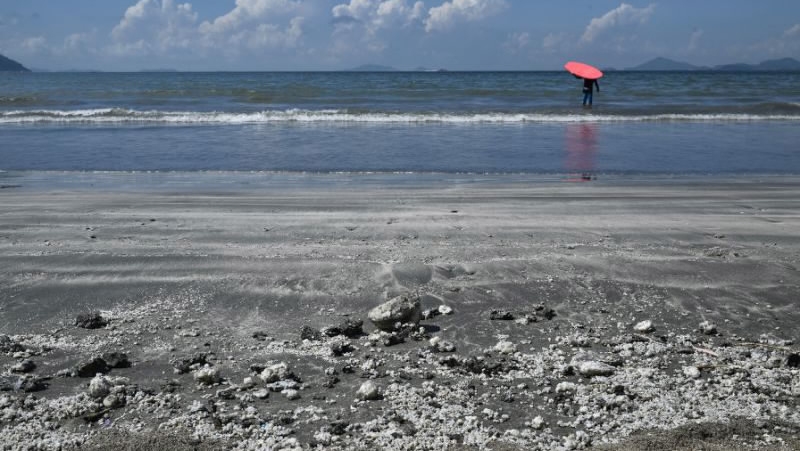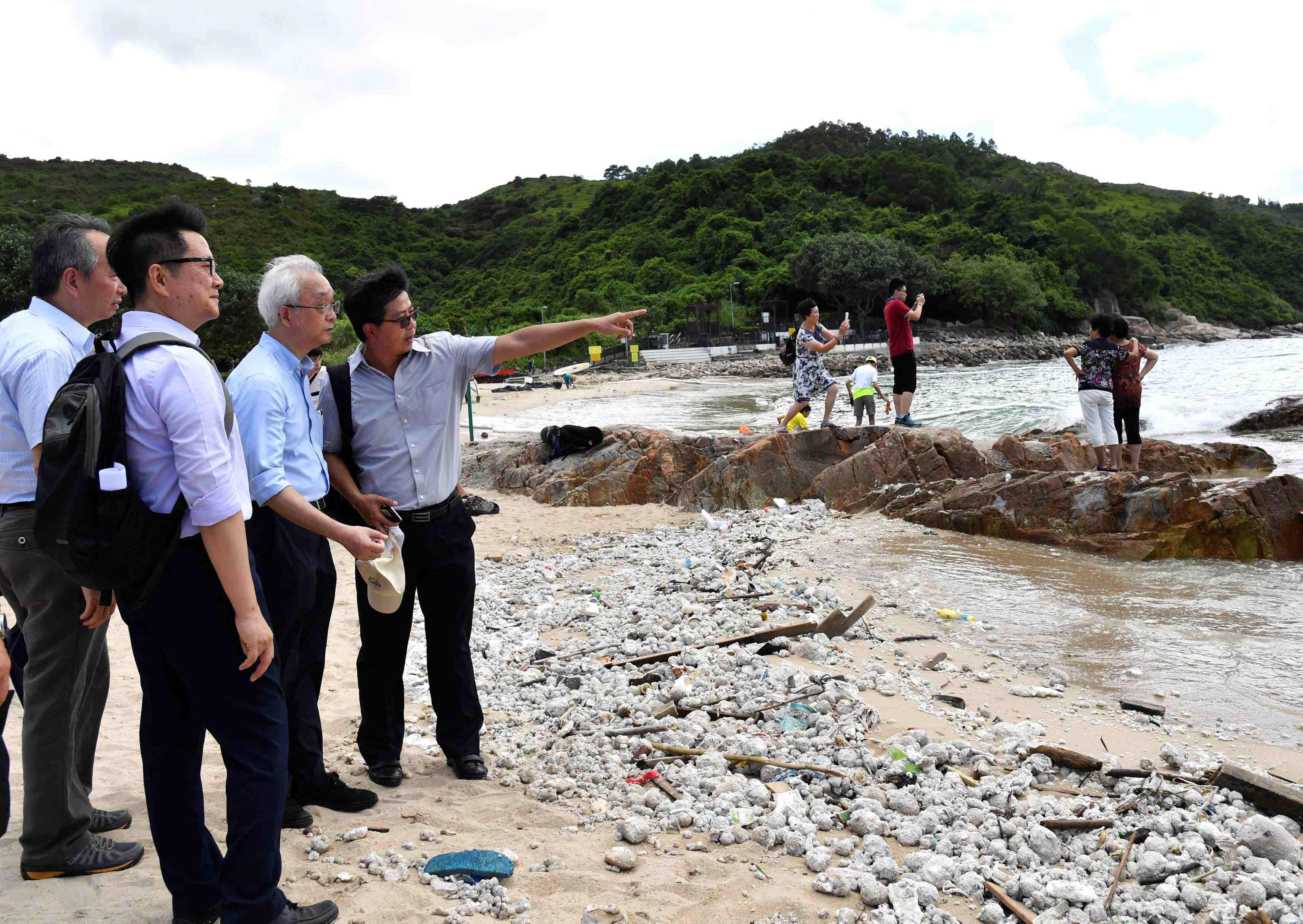
China
12:24, 09-Aug-2017
Hong Kong cleans up 93 tons of palm oil after huge spill
Updated
11:13, 28-Jun-2018
CGTN

Hong Kong has scooped up over 90 tons of palm oil and closed more than a dozen beaches after a ship spill washed foul-smelling, styrofoam-like clumps ashore, the latest major environmental disaster to blight the territory's waters.
Dead fish, shells, rocks, plastic bottles and other rubbish could still be found coated with globules of palm oil on beaches across China's southern coastal line on Wednesday, six days after two vessels collided in the Pearl River estuary.

Environment Undersecretary Tse Chin-wan visits a beach at Lamma Island on the progress of the cleaning up of palm oil by the SAR government, in Hong Kong. August 8, 2017. /Reuters Photo
Environment Undersecretary Tse Chin-wan visits a beach at Lamma Island on the progress of the cleaning up of palm oil by the SAR government, in Hong Kong. August 8, 2017. /Reuters Photo
The SAR government said late on Tuesday it had collected 93 tons of palm oil, most of it congealed, and that the amount of the substance floating in the city's waters was decreasing.
Thirteen beaches were closed since Sunday, a day after the SAR government has been informed of the spill by mainland authorities. Media said the accident happened on Thursday.
Environmental groups have said that the scale of the spill could have severe ecological consequences, although the SAR government said preliminary tests showed low traces of oil from affected areas.

Mainland tourists stand in front of an advertisement of a shopping mall at the Peak in Hong Kong, China August 4, 2017. /Reuters Photo
Mainland tourists stand in front of an advertisement of a shopping mall at the Peak in Hong Kong, China August 4, 2017. /Reuters Photo
Media reported that 1,000 tons of palm oil spilled into the water after the vessels collided. The impact on the territory's marine life, which includes the endangered Chinese white dolphins – also known as pink dolphins – was not immediately clear.
The spill comes at the height of summer, when beaches and outlying islands are packed with day trippers, campers and holiday makers, especially at weekends.
Hong Kong has sweltered in temperatures of around 33 degrees Celsius for over a week, with little relief seen over the next few days, a factor some environmentalists said could exacerbate the problem as it would oxidize the palm oil.
The Environmental Protection Department said it would continue collecting samples from beaches and would recommend reopening the beaches concerned by phases once the water quality is confirmed safe.
1975km
Source(s): Reuters
,Global Times

SITEMAP
Copyright © 2018 CGTN. Beijing ICP prepared NO.16065310-3
Copyright © 2018 CGTN. Beijing ICP prepared NO.16065310-3